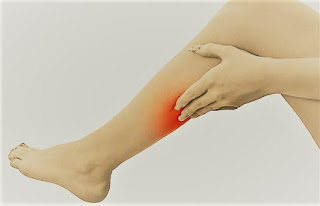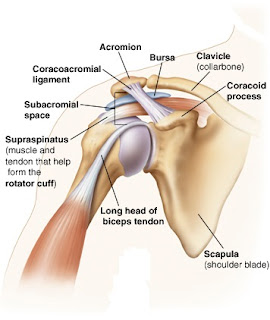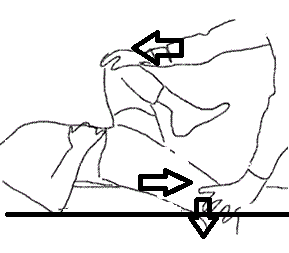MUSCLE CRAMPS
“That random
pain you experience once in a while”
Muscle cramp is a very common term
that every one of us often hear and encounter in our day to day lives. At times you
randomly move a part of your body and experience a sudden contracting pain
in muscles. Most commonly the calf muscles. The pain sometimes is experienced while sleeping or during sitting or standing for long periods of time. commonly this type of pain in muscle is experienced after a few hours of physical activity, might be a vigorous one also. A lot of people including family
and friends often ask me about what muscle cramps actually are. Why do muscle
cramps occur? And what are the ways to get rid of these cramps? So, this time I
picked up a very simple but an important topic to share with all my readers.
What are muscle cramps?
Muscle cramps are the involuntary
sudden contraction of muscles causing pain and stiffness in a muscle. The type
of pain can be described as dull aching pain in a combination with stiffness or
feeling of tightness in the affected muscle. The most commonly affected areas
are the areas of muscle bulk. There is a mechanical damage occurring to the
affected part of the body on a very small scale. The soreness occurring in the
muscle is a kind of a warning sign sometimes to stop further damage to the muscle. Micro
traumas occurring in the muscles results in a debilitating effect to it. There
is some amount of inflammatory response occurring in the muscles. The most
commonly affected muscles are the thigh, calf, foot, hand, neck and abdominal
muscles.
Types and causes of muscle cramp.
· DEHYDRATION
Lack of fluid content in the body is a major cause of muscle cramp. When
the body works normally, there is production of energy by breakdown of glucose
into pyruvate for its use by muscles. The body generates energy most of the
times in presence of oxygen using aerobic method. When there is inadequate
amount of oxygen to be used by muscles during activity the pyruvate is further
broken down to be utilized following the anaerobic method. Which converts
pyruvate into lactate. This substance increases the acid level in the muscles
causing accumulation of lactic acid. Adequate amount of water consumption leads
to flushing out of the lactic acid that has been accumulated in the muscles.
Lack of water and altered electrolyte leading to acidity in the muscles causes
pain and cramps.
· OVERUSE
The excessive use of a particular muscle or using a muscle which was
earlier not in use causes cramps. The contracting pain occurs after a few hours
of activity. The overuse of muscles
leads to altered electrolyte balance in the body, inducing cramps.
· NON-USE
Holding a limb in a particular position for prolonged duration can also
cause muscle fatigue. Immobility leads to fluid and electrolyte imbalance as
the body is not functioning adequately while we hold on to a position.
· INJURY
Cramp is a protective mechanism of the body after an injury. Cramps
results in pain in the affected area causing limitation of movement, which
reduces the chances of further injury to the injured muscle.
· NOCTURNAL CRAMPS
We often experience sudden tightness and contracting pain in the muscle.
This usually happens when we stretch our leg while sleeping. This type of pain
occurs most commonly in thigh, calf or feet. This may occur due to prolonged
sitting or standing during day time, or over exertion of the leg muscles.
· MEDICINE INDUCED
Medications cause alteration in the metabolism of the body. There might be some amount of water loss,
like in case of hypertensive medications or depletion of some vital nutrients
and minerals from the body. Therefore, muscle cramps can also be a result or we
can say a side effect of certain medications. Like, medication for alzheimer’s,
parkinsons, osteoporosis, asthama, cholesterol, hypertension.
· MINERALS AND ION DEPLETION
Lack of minerals and sodium, potassium or magnesium ions from the body
leads to cramps and weakness too, due to electrolyte imbalance.
Preventing muscle cramps
There a many ways to get rid of muscle cramps.
o
Drink
plenty of water. This helps the body to flush out the toxins and help reduce
the acid level in the body causing pain. It helps in balancing the electrolyte
and fluid levels in the body. Adequate Water intake helps in maintaining a
normal body metabolism. Drinking 6-8 glasses of water a day is good for body.
o
Stretching
before exercise and also before going to sleep is beneficial for avoiding
muscle cramps. Do a 10-15 minutes of self-stretching exercises of the muscles.
o
Eat
food items rich in minerals like potassium, sodium, calcium. Provide your body
proper nutrition to get rid of muscle cramps occurring due to depletion of
minerals.
o
Give
your body proper rest after overuse or injury. This helps promote healing and
prevent further chances of injury or muscle cramp.




Comments